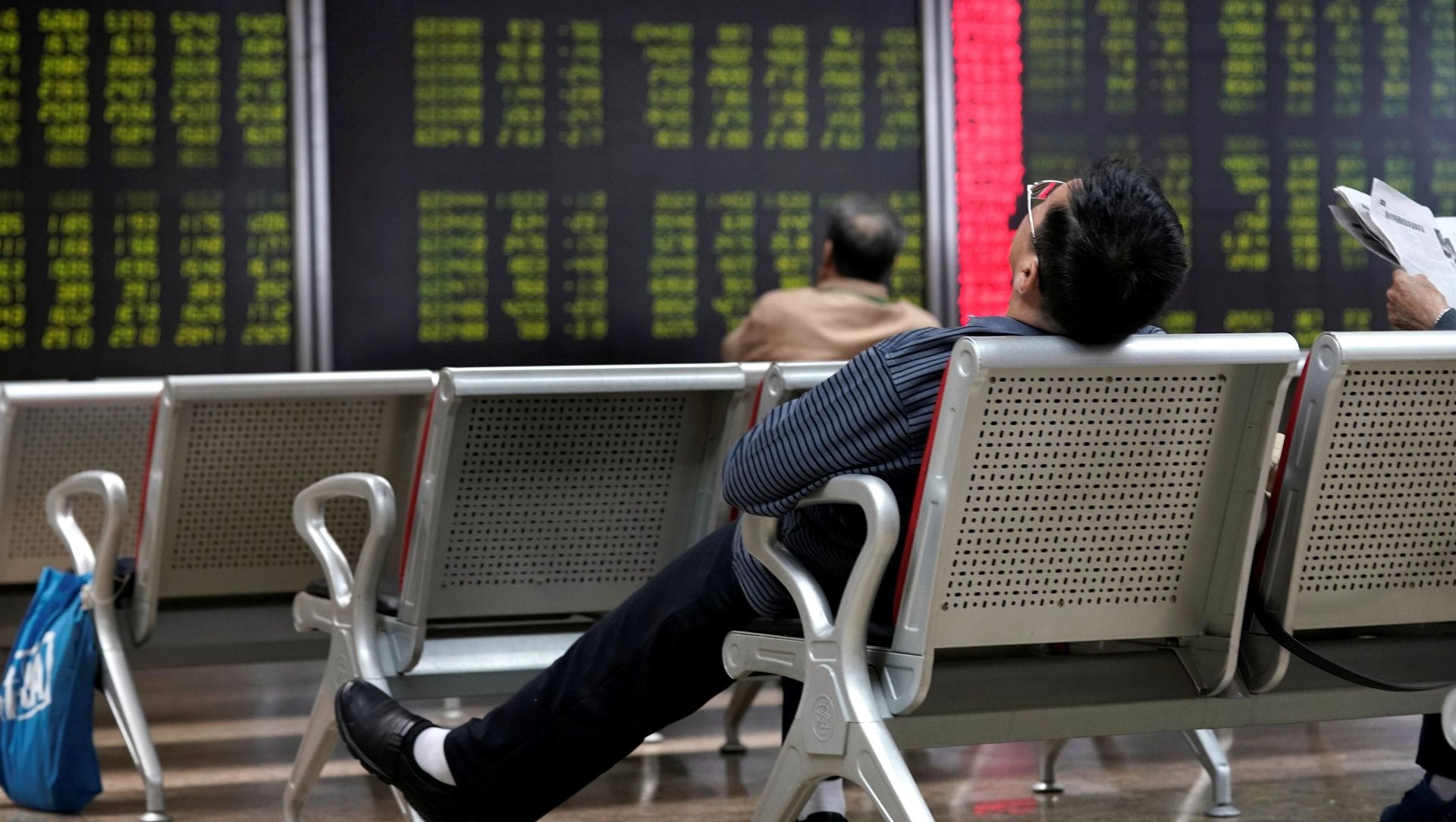Trump is causing China’s tech giants a world of pain—and so is Beijing
In January, e-commerce giant Alibaba joined the tiny club of tech companies with valuations above $500 billion. Tencent, China’s messaging and gaming empire, had touched that milestone briefly late last year.


In January, e-commerce giant Alibaba joined the tiny club of tech companies with valuations above $500 billion. Tencent, China’s messaging and gaming empire, had touched that milestone briefly late last year.
But now that the US and China are well into their trade war—as well as a tech cold war—China’s biggest tech firms have seen their values plunge painfully.
Both companies were heavily sold this week following the market rout on Wednesday that hit US tech firms hard. In fact, their values were already down sharply as the threat of a trade war became a clear reality in June, when the US announced a July 6 start date for the first round of tariffs on $34 billion in Chinese goods.
Alibaba, which is listed on the New York Stock Exchange, hit a new high for the year on June 14 when its stock closed at $210.86. Since then it’s fallen more than 32%. Its market cap as of yesterday (Oct. 11) was around $370 billion.
The trade war initiated under Donald Trump and tensions between the US and China around intellectual property have created uncertainty for China’s tech sector in multiple ways. These include tariffs on supply-chain components made in China, actions against specific firms from ZTE to Huawei, and efforts to reduce China’s ability to invest in technology in the US. Meanwhile if the tariffs hurt the Chinese economy more broadly, companies like Alibaba could see reduced domestic demand.
The picture for Tencent is even worse. It’s lost $250 billion in market cap this year, and as of this week is no longer one of the world’s top 10 tech companies.
Like Alibaba, it registered a deeper plunge as the trade war worsened, with the US putting tariffs on some $250 billion of Chinese products as of last month. But its woes aren’t caused by the trade war alone.
Tencent has faced troubles on two fronts, as Chinese regulators have held up video-game approvals citing concerns over children’s health, including myopia and video-game addiction. Working with the government to verify users’ ages using public-security databases, among other controls, hasn’t helped reassure Tencent’s investors given that games contribute more than a third of the company’s revenue.
Tencent’s stock price has bounced back somewhat at HK$288.40 as of today’s (Oct. 12) closing price, up 8% compared with yesterday.
It hasn’t been easy for search engine Baidu either, which counts on American chipmakers for supplies.
Overall, it’s also been a tough year for many Chinese firms to go public. Both smartphone maker Xiaomi and lifestyle-services platform Meituan Dianping are trading below their IPO prices as of today.
Things may well get worse. Jack Ma, Alibaba’s chairman, warned of a 20-year trade war in September.
The latest round of tariffs included a variety of electronics components used in everything from networking products to chip manufacturing. While the latest tariffs were put at 10%, Trump has warned they could rise to 25% in 2019.
In an interview with Fox News yesterday, Trump noted the “big impact” on China so far and said, “I have a lot more to do if I want to do it.”